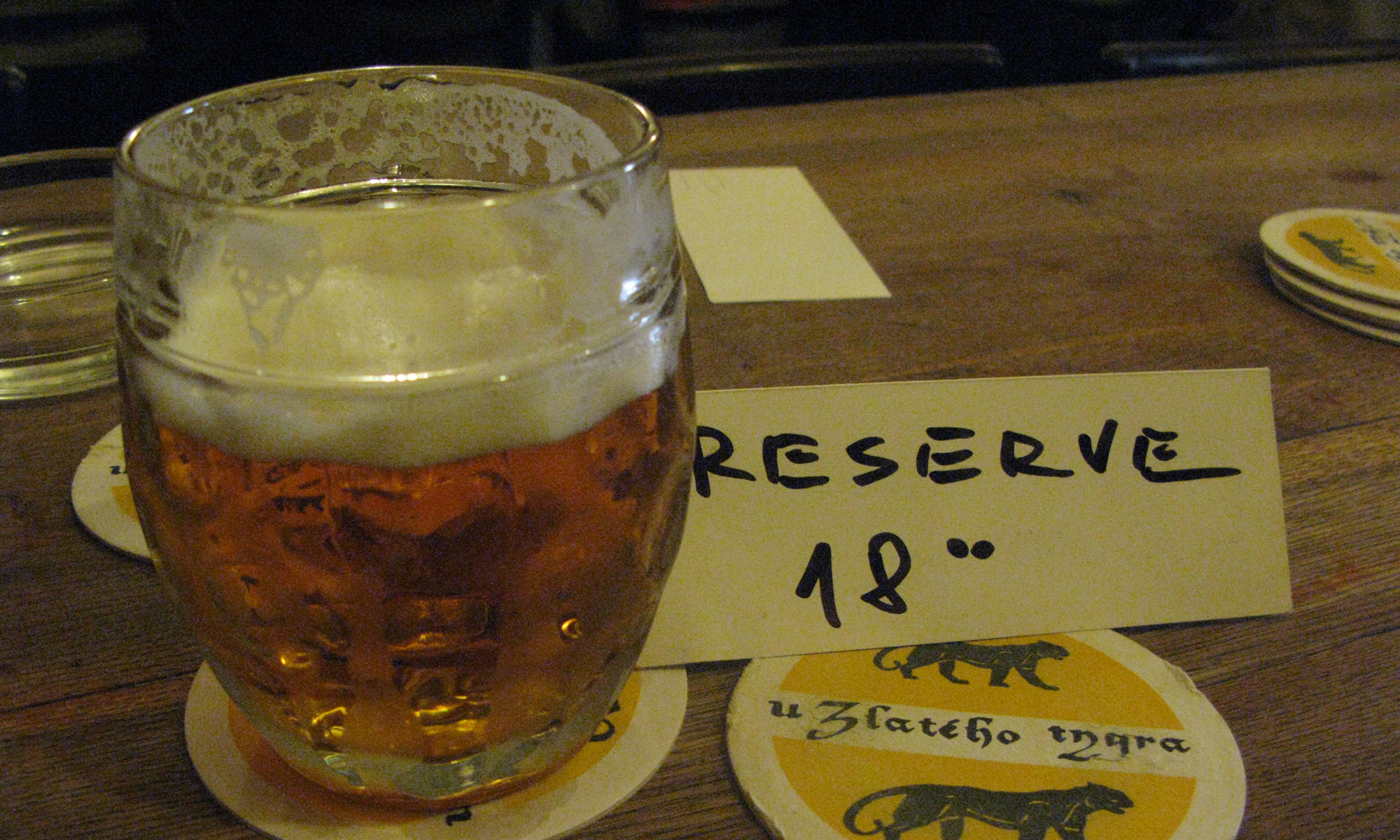The other day, I posted the following on Twitter: “Beer cocktails are just wrong.” Chris confirmed this sentiment and re-Tweeted it as an official opinion of thebeergeek.com. This pronouncement came as a result of a friend’s link to an article on beer cocktails. Little did I know that it would stir up the passion of Magnolia Gastropub & Brewery’s own Dave McLean. With his permission, I am reprinting a portion of an e-mail he sent me in defense of beer cocktails.
Dave writes:
To me, beer, including the beer I make myself, is completely fair game to be considered as a cocktail ingredient. In the end, the art of both brewing and cocktail creation (and cooking, for that matter) revolves around combinations of flavors and careful manipulation of ingredients in the service of something that tastes good. It’s the craft of brewing that lead me first down a path toward the art of cooking and then the art behind spirits and cocktails. I found all of those disciplines to be cut from the same cloth.
9 out of 10 times I’m more inclined to drink a beer than any other alcoholic beverage. And when I do choose something distilled, I often lean toward a straight, brown spirit in order to enjoy the complexity and nuance of its aging. But, in the right hands, a well-conceived and crafted beer cocktail is a great treat for me from time to time.
The talented, dedicated, and professional cocktail smiths are plying a trade that very much resonates with me as a brewer. We’re all after the same thing, after all, when viewed through the lens described above. The best at the cocktail craft have a deep understanding of flavor and every ingredient and possible ingredient. They often resort to making their own ingredients to make good on an idea they have that can’t be resolved with existing products. And, the flavors and textures of beer present a world of possibilities, from the malty, hoppy, and fermentation-derived flavors that we know so well to the more mouthfeel-based impact of a beer’s density and/or carbonation. The raw ingredients present other opportunities, from malt syrups to hop-infused bitters.
And there you have it: in my mind, anything that opens doors and possibly makes for something really delicious to eat or drink is worth exploring. As a brewer, I don’t think it would be right of me to be offended by someone else exploring flavor using my beer. Rather, it’s flattering to think that the flavors in my beer might be a source of inspiration for a fellow food/beverage artisan, just like when someone cooks with my beer and creates a delicious dish. Cooking and mixing with beer are pretty much two sides of the same coin when considered in this fashion. But, in either case, gratuitous use of any ingredient can kill the dish or drink while a talented person makes all of the ingredients sing in harmony.
Okay, so admittedly Dave’s eloquent discourse on the virtues of beer cocktails was eye opening and he makes a good argument. He definitely helped me view things from a perspective I had never before considered. That is, looking at beer as an “ingredient.” I greatly respect Dave’s perspective, but I had to laugh reading his e-mail because I neither cook, nor brew, so some of his passion was lost on me.
A few years back at a party chock full of craft beer aficionados, Chris and I were each handed a beer cocktail. It was something along the lines of Chimay with grenadine, fresh lemon juice and a few other things I don’t remember, topped off with a wedge of pineapple. I graciously accepted the beach resort-style froo-froo looking concoction and even admit that it tasted pretty good. But I couldn’t help feeling like I was committing an unforgivable sin. It seemed an incredible waste of a fantastic beer.
I can’t lie and say that my exposure to beer cocktails is extensive, (I don’t think unintentionally drinking a Radler at Oktoberfest counts.) but on this issue, Dave and I have agreed to disagree. There are two main reasons, I have difficulty wholeheartedly embracing beer cocktails.
1) As someone who does not drink any other alcoholic beverage, I view beer as an end product. It is a final libation in and of itself. Therefore, in my mind, the addition of anything else is superfluous and denies beer its identity. So where does Berliner Weisse fall into this argument, you may ask. Well, I confess that I don’t care for Berliner Weisse, but I do accept it as a traditional style that adds just one ingredient. It doesn’t fall into the trendy wave of mixology, which brings me to my next point.
2) Beer does not need to be gussied up for the high powered 30-something crowd. There is nothing unladylike or uncouth about having a pint of craft beer in your hand at the local Chamber of Commerce mixer. Craft beer drinkers have nothing to be ashamed of and do not need to legitimize their choice of craft beer by making it appear more sophisticated.
As beer geeks, we all know that in the hands of a highly skilled artisan, beer offers a rich complexity of flavors. It is most definitely a multifaceted beverage on its own. However, as Dave so deftly helped me see, beer can also be selected for specific characteristics that complement and enrich other flavors. It can be used as an ingredient in the creation of something wonderful and delicious.
I want to thank Dave for writing his long, work-avoiding e-mail on this subject. Such an exchange of ideas reminds me that craft beer drinkers are as thought-provoking and varied as the beverage we so revere.
